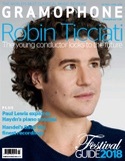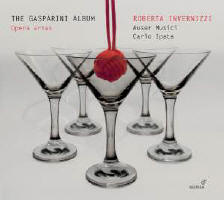Texte paru dans: / Appeared in: |
|
|
Outil de traduction (Très approximatif) |
|
|
Reviewer: Lindsay Kemp In his booklet note, Carlo Ipata advises that this is only ‘one of the many possible’ portraits of Francesco Gasparini. Even to baroque experts Gasparini is best known as the chap who, by leaving his job as choirmaster at the Ospedale della Pietà, provided Vivaldi with his first opportunities in sacred choral music; but he was an important opera composer with numerous successes in Venice and Rome in the first quarter of the 18th century, and one who in recent years has often emerged with credit from mixed baroque recital discs. A few of his larger works have been recorded – including the opera Il Bajazet conducted by Ipata (7/15) – but this album may well be the first release to make a wider scan of his vocal art. Gasparini was a friend of Alessandro Scarlatti, but while his arias can be similarly pithy (particularly in the two from the early Il Roderigo), most here show a more Handelian scale and confidence. Indeed, Gasparini is thought to have influenced Handel not just directly with his settings of the Tamerlano libretto but also more generally with his skill in accompanied recitative, affectingly demonstrated in the restless ‘Ombre care’. And yet, however agitated, there is always grace and composure in his writing, as shown in the beautifully written cantata Andate o miei sospiri. Other highlights include the touching ‘Qui ti scrivo o nome amato’, in which an obbligato theorbo mimics the tracery of a knife carving a beloved’s name, the majestic ‘Qui dal porto d’ocean’, and the enchanting soprano-recorder songbirding of ‘Se non canti più per me’. There are few sopranos one would rather entrust with these pieces than Roberta Invernizzi, and with her commanding voice and sturdy technique she does not disappoint, articulating the lyrical as effectively as she copes with demanding leaps and passagework. It is a pity, then, that she is heard in a rangy acoustic that effectively pushes her away from us, blunts some of the energy of the orchestra and causes headaches for the editor (hear the double note at 0'28" in ‘Ombre care’). An odd choice to make when so much else is so right. |
|




